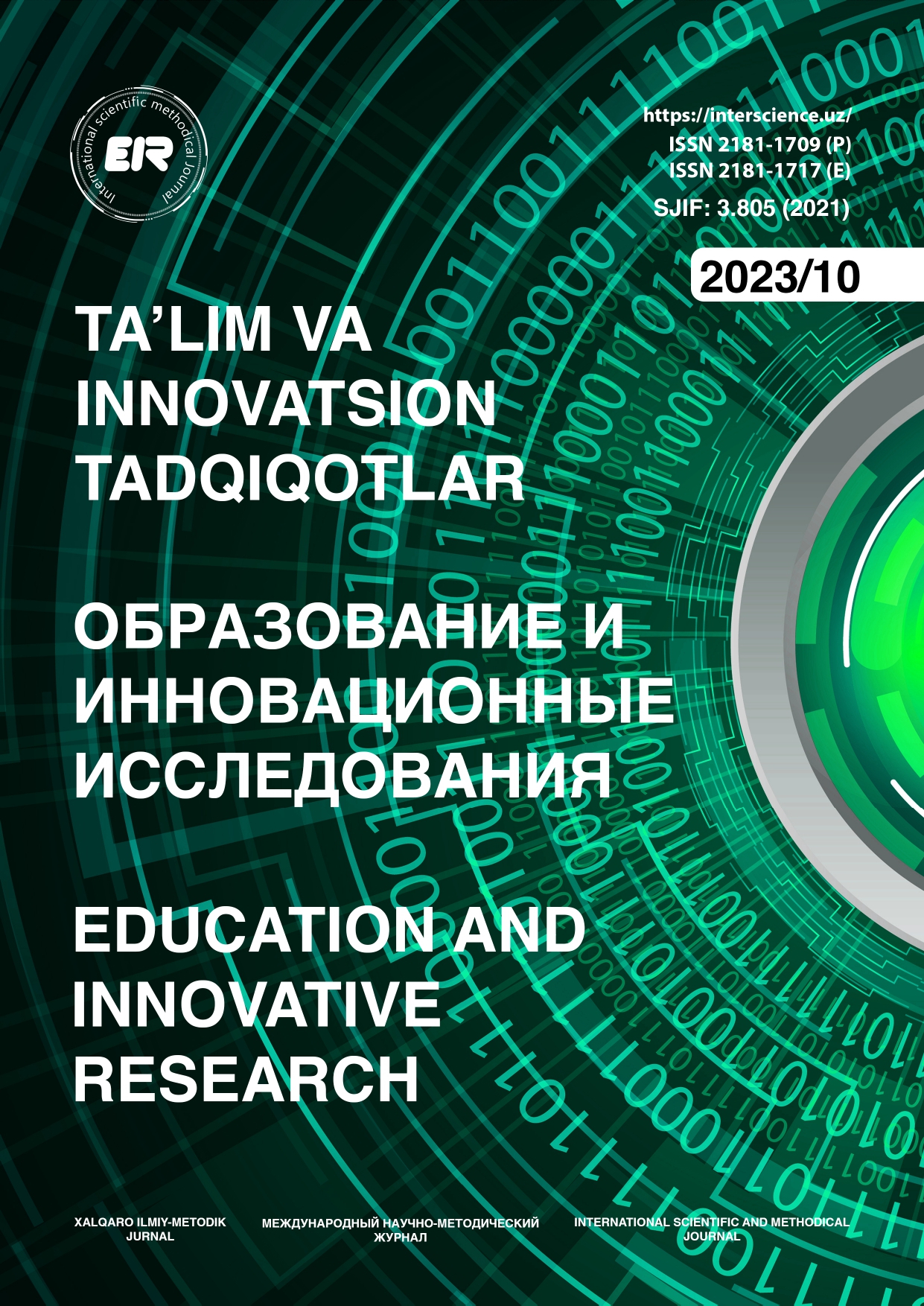ANALYSIS OF THE ROLE OF PARENTS AND SOCIETY IN ASSESSING THE KNOWLEDGE OF SECONDARY SCHOOL STUDENTS (GRADES 10-11) ON THE BASIS OF PEDAGOGICAL QUALIMETRY
Abdulhafizov Buned Khakimzhonovich Higher education, science and knowledge under the Ministry of Innovation and the Agency for the Assessment of Qualifications Head of the Namangan Region Department
Keywords:
pedagogical qualimetry, secondary school, grades 10-11, students, knowledge, assessment, the role of parents, the role of society, analysis, education system, level of knowledge, educational process, analysis and methodological recommendations, the process of education.Abstract
This article analyzes the role of parents and society in the process of assessing students’ own knowledge at the secondary school level (grades 10-11). The article is devoted to the study of the basic principles of pedagogical qualimetry and the importance of parents and society in assessing students. The author pays his initial attention to this subject, and through the results of the analysis teaches how students cope with their role and tasks in improving their knowledge and skills. Based on the results of the analysis, it is discussed how parents and society can assimilate educational processes and strengthen students. This article refers to the great importance of strengthening community and family in teaching students to develop their educational fields.
References
Popham, W. J. (2018). «Assessment literacy overlooked: A teacher’s perceptions.» Educational Measurement: Issues and Practice, 37(3), 3-8.
Airasian, P. (2001). «Classroom assessment.» New York: McGraw-Hill.
Black, P., & Wiliam, D. (1998). «Inside the black box: Raising standards through classroom assessment.» Phi delta kappan, 80(2), 139-148.
Marzano, R. J. (2006). «Classroom assessment and grading that work.» Alexandria, VA: ASCD.
Pellegrino, J. W., Chudowsky, N., & Glaser, R. (Eds.). (2001). «Knowing what students know: The science and design of educational assessment.» National Academies Press.
Stiggins, R. J. (2002). «Assessment crisis: The absence of assessment for learning.» Phi delta kappan, 83(10), 758-765.





